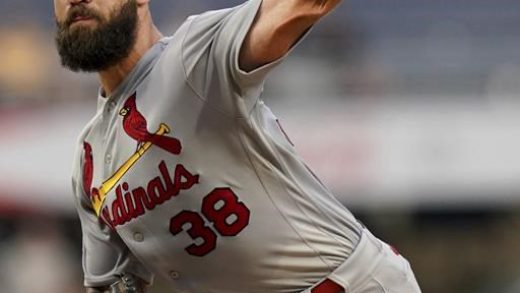:format(webp)/https://www.thestar.com/content/dam/thestar/entertainment/2023/02/13/guido-basso-a-charter-member-of-rob-mcconnell-the-boss-brass-has-died-at-85/guido_basso.jpg)
One of the integral charter members of the Grammy and Juno Award-winning group Rob McConnell & the Boss Brass has died at 85.
Master trumpeter, flugelhornist, harmonica player, composer, arranger and conductor Basso died of natural causes Monday morning at his Toronto home, according to an Instagram post by his wife, Kristin Basso.
“He went so quickly and so peacefully. My heart is broken,” Basso wrote.
Basso was a consummate musician, said Don Breithaupt, leader of the band Monkey House, who worked with him often in numerous settings.
“Apart from being a world-respected jazz man, artist and improviser, particularly on the flugelhorn, he was also such a fixture on the music scene here as a bandleader,” Breithaupt said.
“He would be the guy putting bands together for out-of-town headliners who came in, or working society functions and playing on people’s records — and certainly not only jazz records.
“He lived large as a personality, too. He was a wonderful guy to work with and work for. He was a very steady, dependable, and generous and diplomatic guy as a bandleader.”
The Montreal-born Basso, who formed his first quartet at the age of 11 and studied at the Conservatoire de musique du Québec à Montréal, enjoyed tours with Vic Damone and the husband-wife team of Louis Bellson and Pearl Bailey before settling in Toronto in 1960.
When he first arrived, Basso sat in with everybody he could at such famous jazz venues as the First Floor Club, the House of Hambourg and George’s Spaghetti House and, within six months, started a quartet with trombonist Rob McConnell, guitarist Ed Bickert, bassist Bill Britto and drummer Archie Alleyne.
He was hired as music director for the variety show “Nightcap” and a number of other CBC TV programs. In the ’70s he organized Toronto big band gigs featuring such superstars as Dizzy Gillespie, Duke Ellington, Count Basie, Quincy Jones, Benny Goodman and others.
Whenever stars came to town to entertain audiences, Basso was the one they called to assemble the band.
“The standards would always be high and you knew that everything would go off without a hitch because he was such a great helmsman that way,” recalled Breithaupt.
Basso also became an in-demand session musician for the better part of six decades, playing on more than 200 albums, including works by Anne Murray, Ian Tyson, Sharon, Lois and Bram, Mel Tormé, Holly Cole and Breithaupt, who produced a number of albums that included Basso as a guest and was always impressed.
“Sometimes when you’re shopping through takes when someone’s done solos, you’re looking for the gold,” he said. “When Guido played for you, every take was gold, from start to finish. It was always, ‘Which one of these do we use? They’re all perfect.’”
Basso was best known for being a charter member of the 22-piece Boss Brass, formed in 1968, which won three Grammy Awards and three Junos over 17 albums during the 1970s and ’80s. Individually, Basso won a Juno for Traditional Jazz Album of the Year in 2004.
Despite his jazz expertise, Basso never considered himself a purist for commercial reasons, as he explained in a 2016 interview with Bill King for King’s book “Talk! Conversations In All Keys.”
“I thought I wanted to be a jazz musician, but then the better lifestyle won out,” Basso told King. “To some ‘jazzniks,’ that was selling out. It’s not selling out — I chose my lifestyle. It’s even more frustrating that you’re in a commercial world trying to be still a jazz artist — many mental and emotional battles go on within. There’s a price for everything. Jazz, for me, is a luxury. I have to be able to afford to play jazz.”
Basso leaves his wife, Kristin, and was predeceased by his daughter Mia Basso Noble.
JOIN THE CONVERSATION


